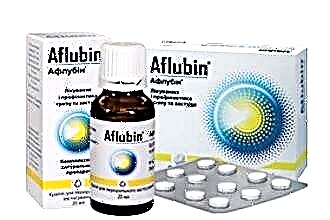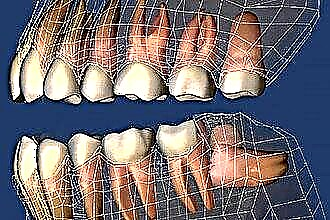Viral tonsillitis is an ENT disease characterized by the occurrence of catarrhal processes in the tonsils. The causative agents of infection are non-cellular pathogenic agents that can multiply only inside healthy cells of a living organism.
 Unlike bacteria, virions consist of only three parts: the RNA or DNA material, the capsid (protein coat) and the lipid layer. Viruses are obligatory pathogens that cannot develop outside living cells. They spread mainly by airborne droplets, and in case of penetration into the human body, they begin to prepare a "springboard" for DNA or RNA replication. Their waste products lead to intoxication of the body, as a result of which the patient feels discomfort in the throat, malaise, subfebrile fever, etc.
Unlike bacteria, virions consist of only three parts: the RNA or DNA material, the capsid (protein coat) and the lipid layer. Viruses are obligatory pathogens that cannot develop outside living cells. They spread mainly by airborne droplets, and in case of penetration into the human body, they begin to prepare a "springboard" for DNA or RNA replication. Their waste products lead to intoxication of the body, as a result of which the patient feels discomfort in the throat, malaise, subfebrile fever, etc.
Etiology
What medicines to use to eliminate viral tonsillitis in adults? First, you need to find out which pathogens of infection provoke pathological changes in the body. Viral sore throat is 10 times less common than bacterial. The causative agents of pathology can be:
- rhinoviruses;
- herpes virus;
- adenoviruses;
- influenza virus;
- enteroviruses.
As a rule, a viral disease proceeds more easily than a bacterial disease and does not give serious complications.
However, in the case of a strong weakening of immunity, there is a risk of attaching a bacterial infection, represented by streptococci or staphylococci. The development of a bacterial complication is indicated by febrile fever, purulent plaque on the tonsils, thick yellow-green discharge from the nose, etc.
When to take your medicine?
Penetrating into the cells of the mucous epithelium, pathogenic agents provoke many cytopathic effects. They alter the cellular structure of host cells, leading to apoptosis. The main reason for the destruction of the affected tissues is the suppression of the normal vital activity of cells under the influence of viruses. This inevitably leads to disruption of cellular metabolism and, accordingly, deterioration of tissue trophism.

Untimely treatment of tonsillitis in adults is fraught with deep damage to the ciliated epithelium and tissue necrosis. To prevent the consequences, antiviral medications should be taken when the following symptoms appear:
- myalgia;
- arthralgia;
- headache;
- subfebrile fever;
- hyperemia of the tonsils;
- discomfort in the throat;
- an increase in regional lymph nodes.
Depending on the type of infectious agent, the symptomatic picture may be supplemented by other signs. If tonsillitis was provoked by rhinoviruses, adults often develop rhinitis or nasal congestion, if the herpes virus causes vesicular rashes on the mucous membranes, i.e. in the nose, in the corners of the mouth, etc.
Features of therapy
With the viral etiology of the disease, antibacterial drugs are ineffective. They can only be used if tonsillitis is complicated by a bacterial infection.
To prevent complications and speed up the healing process, patients should adhere to the following treatment principles:
- strict bed rest - prevents the creation of additional loads on the cardiovascular and respiratory systems;
- the use of immunostimulants - helps to increase the body's resistance, as a result of which the number of pathogens in the foci of inflammation is reduced;
- antiseptic rinses - eliminate local manifestations of pathology and contribute to the elimination of opportunistic microorganisms on the surface of the affected mucosa;
- warming compresses - stimulate the resorption of infiltrates in the hyperemic tissues of the oropharynx, which accelerates the regression of catarrhal processes;
- antiviral agents - suppress the activity of virions in the palatine tonsils, thereby arresting the clinical manifestations of the disease.
The main feature of the treatment of viral tonsillitis is the passage of symptomatic rather than etiotropic therapy.
Classification of antiviral agents
What antiviral medications can be used to treat tonsillitis in adults? Conventionally, antiviral drugs are divided into two types:
- stimulating the immune system to destroy pathogens;
- attacking virions in infected cells.
For the prevention and treatment of viral infections at the stage of exacerbation of catarrhal processes, drugs of the second type are often used. They have several important differences in the mechanism of action: some prevent viruses from entering cells, others prevent their reproduction, and still others prevent copies of the virion from leaving infected cells.
 As a rule, antiviral medications with an extended spectrum of action are included in the therapy of viral tonsillitis. Interferon preparations have a pronounced antiviral activity, which prevents the penetration of pathogenic flora deep into soft tissues. Interferon itself does not have a direct antiviral effect, but it provokes corresponding changes in the cells of the body. When virions penetrate into cells, the process of synthesis of pathogenic proteins is suppressed, as a result of which their reproductive function is impaired.
As a rule, antiviral medications with an extended spectrum of action are included in the therapy of viral tonsillitis. Interferon preparations have a pronounced antiviral activity, which prevents the penetration of pathogenic flora deep into soft tissues. Interferon itself does not have a direct antiviral effect, but it provokes corresponding changes in the cells of the body. When virions penetrate into cells, the process of synthesis of pathogenic proteins is suppressed, as a result of which their reproductive function is impaired.
Antiviral drugs
It is advisable to take antiviral drugs within 24-48 hours after the onset of the first symptoms of the disease. At a later stage of the development of pathology, predominantly symptomatic drugs are used, aimed at eliminating rhinitis, tissue hyperemia, sore throat, etc. What antiviral drugs can be used for angina?
- "Arbidol" is a drug with interferon-inducing activity; stimulates cellular and humoral immunities to eliminate pathogenic viruses;
- "Relenza" is an antiviral drug, the components of which inhibit virion neuraminidases, which prevents their penetration into healthy cells;
- "Kagocel" is an interferon inducer with antiviral, anti-inflammatory and radioprotective effects; promotes the biosynthesis of endogenous interferon proteins, thereby increasing local and general immunity.
Antiviral drugs should not be prescribed to patients with galactose intolerance and detoxification organ dysfunction.
Homeopathic remedies
Homeopathic medicines are drugs that increase the body's resistance. They include negligible concentrations of pathogenic microorganisms, due to which the body develops specific immunity against a specific causative agent of the disease. For the treatment of adults, several homeopathic remedies are used that have pronounced antiviral activity:
 Aflubin is a homeopathic remedy of complex action with antipyretic, analgesic and anti-inflammatory properties; stimulates the activity of protective cells, which accelerates the regression of pathological processes in tissues;
Aflubin is a homeopathic remedy of complex action with antipyretic, analgesic and anti-inflammatory properties; stimulates the activity of protective cells, which accelerates the regression of pathological processes in tissues;- Viburkol is an antiviral drug with a pronounced analgesic and decongestant effect; relieves fever and catarrhal processes in the affected ENT organs;
- "Oscillococcinum" is an analgesic, immunostimulating and anti-inflammatory agent; relieves pain in the muscles, head, throat and joints.
Taking homeopathic remedies will improve your well-being only if they are used in the prodromal stage of tonsillitis.
Homeopathic medicines of antiviral action practically do not have a negative effect on the body. For this reason, they can be used for the prevention of infectious pathologies on the eve of seasonal diseases.
Interferon preparations and its inducers
Interferon preparations are one of the safest groups of medications that enhance non-specific immunity. It has shown high efficiency in the treatment of respiratory diseases in adults, therefore it is often used in the treatment of viral tonsillitis. Interferon is active against all strains of the virus, so it can be used to treat not only angina, but also other viral infections.
The effectiveness of interferon becomes obvious already on the 2-3 day of using the drugs. They can be used both in the period of exacerbation of the pathology, and in the latent stage of its development. The most effective drugs for sore throat include:
- Cycloferon is an immunomodulator that promotes the production of endogenous interferon; has antiproliferative and antiviral effects;
- "Kipferon" is a combined agent that helps to destroy not only viruses, but also bacteria; high concentration of protein in tablets provides immunostimulating, anti-inflammatory and anti-edema effect on tissues;
- "Neovir" - a drug that stimulates the activity of macrophages, B-lymphocytes and NK-killers; inhibits the activity of virions in the affected cells, which prevents their development.

Interferon preparations only activate the immune system, as a result of which the process of destroying the pathogenic flora is accelerated. However, it is not recommended to use them as the main anti-viral drugs. In order to accelerate the regression of catarrhal processes in the ENT organs, local anesthetics and antiviral agents of a chemical nature cannot be abandoned.
Immunomodulators
Can immunomodulators be used in the treatment of tonsillitis in adults? Immunomodulators are drugs that do not have a direct antiviral effect on the body. They can be used as an adjunct to mainstream therapy to prevent recurrence of inflammation. Some types of medications can only be prescribed by immunologists, others are available without a prescription.
To prevent complications and re-development of viral sore throat, drugs such as Immunal, Panivir, Ribomunil, Viruter, etc. can be used. All immunomodulators are considered only as prophylactic agents that are advisable to use for secondary immunodeficiency, vitamin deficiency and chronic infections.
The first tangible results from the use of immunomodulators appear after 2-3 weeks.

 Aflubin is a homeopathic remedy of complex action with antipyretic, analgesic and anti-inflammatory properties; stimulates the activity of protective cells, which accelerates the regression of pathological processes in tissues;
Aflubin is a homeopathic remedy of complex action with antipyretic, analgesic and anti-inflammatory properties; stimulates the activity of protective cells, which accelerates the regression of pathological processes in tissues;

